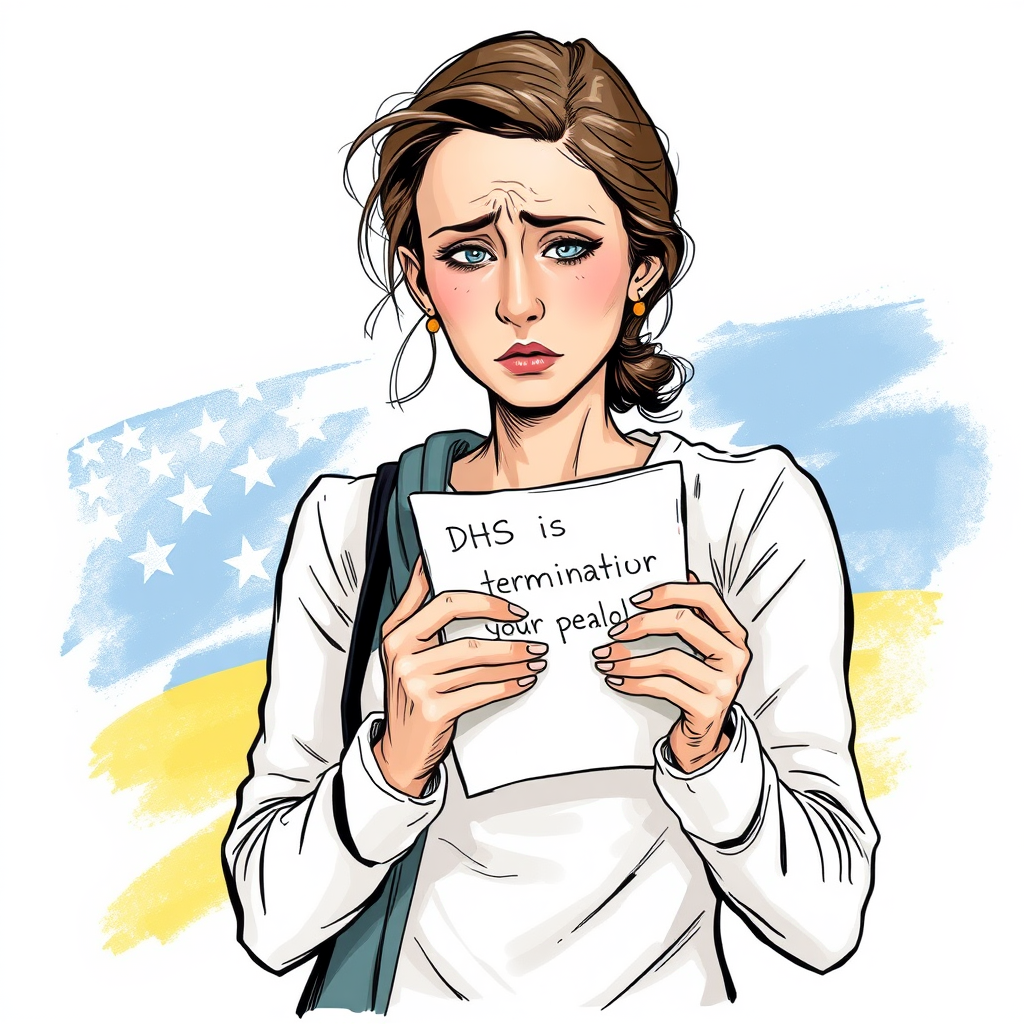Ukraine Parolees Receive Erroneous Deportation Threat Email

A wave of panic swept through the Ukrainian community in the United States this week after numerous individuals legally residing under a humanitarian program received erroneous emails threatening revocation of their status and demanding they leave the country within seven days. The emails, which warned of potential law enforcement action and removal from the US, were sent in error by the Department of Homeland Security (DHS), the agency confirmed Friday.
The misstep comes amidst heightened anxieties surrounding the future of protections for Ukrainians in the US. Last month, Reuters reported that the Trump administration was considering ending temporary legal status for approximately 240,000 Ukrainians who fled the conflict with Russia – a potential reversal of the welcoming policies enacted under President Biden. While DHS insists the Ukrainian parole program, established after the 2022 Russian invasion, remains active, the erroneous email has understandably fueled fears and distrust.
The threatening email, received Thursday, stated bluntly, “If you do not depart the United States immediately you will be subject to potential law enforcement actions that will result in your removal from the United States…DHS is terminating your parole. Do not attempt to remain in the United States.” A follow-up email Friday attempted to correct the error, assuring recipients that their parole terms remained unchanged.
The impact on those who received the message was immediate and deeply distressing. One Ukrainian parolee, speaking anonymously out of fear of government repercussions, described experiencing a panic attack upon reading the email, stating she was left unable to breathe and uncontrollably crying. She had recently renewed her immigration status and could find no explanation for the sudden threat of deportation, emphasizing her clean record.
Angela Boelens, president of IA NICE, a non-profit organization sponsoring Ukrainian refugees in Iowa, reported that at least two of the families she supports received the alarming letter, including one woman who is pregnant. Boelens described the email as exceptionally frightening, noting its direct and uncompromising language differed significantly from standard revocation notices.
This incident highlights a deeply concerning lack of internal communication and quality control within DHS. While the agency has acknowledged the error, the emotional toll on vulnerable individuals and the sowing of unnecessary panic are significant. Beyond the administrative mistake, the timing – coinciding with reports of potential policy reversals – raises questions about the administration’s commitment to providing safe haven for those fleeing the ongoing conflict in Ukraine. The incident underscores the urgent need for clear, consistent communication with vulnerable populations and a robust system to prevent such errors from occurring in the future.